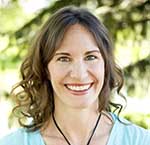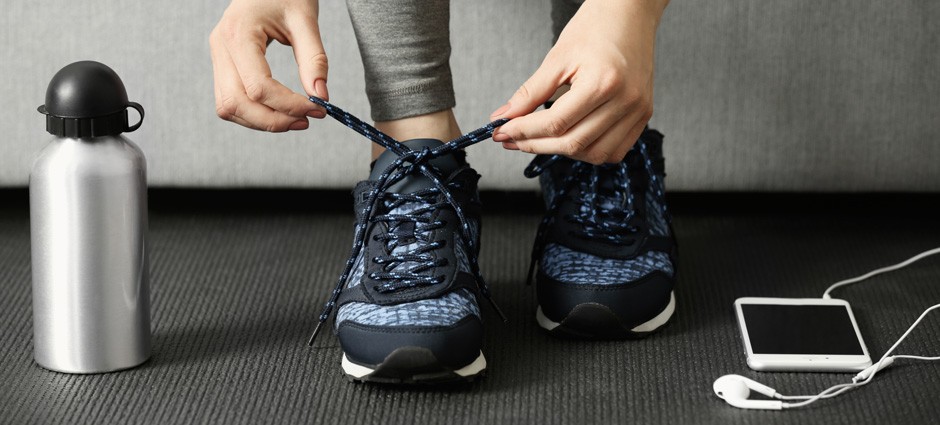Most of us are familiar with the yo-yo approach to healthy living—the high of making smart choices one day or month or even year, only to dip to new lows the next. Professional health coach Carrie Chanos used to live that way (read her story here), but her life is now evidence that there’s a better way. Here she explains how to start down the path of permanent change.
How do you help people kick-start a healthy lifestyle?
It’s about more than just recommending changes—it’s figuring out a way to get them to invest in themselves. And for them to realize they’re worth investing in. For some people, it’s a matter of figuring out why haven’t they done that. What’s holding them back from investing in themselves? A lot of the obstacles are emotional. We have to change the way we relate to food and to our bodies. Because if we don’t like ourselves, we’re not going to think we’re worth the effort. If our relationship with food is “it’s what makes things better” versus “food is fuel,” then that’s not helpful. It’s changing that mindset.
What’s the first step toward a better relationship with food and with our bodies?
I help people identify their “why”—why they want to change. Sometimes the why people are ready for is their daughter’s wedding or a high school reunion or wanting to look a certain way. But as they get close to achieving that goal, we’ll talk about, “Do you feel like you’ve changed? How do you feel physically? Emotionally? Do you feel any different than you did before you started this process? How do you see yourself moving forward after the wedding or reunion?” Very rarely will they say, “I’m just going to go back to doing whatever, and I’m going to regain that 20 pounds.” So we begin to shift to a long-term goal based on: “How do you feel about yourself, about life? What would it feel like for this to be the ‘new you?’” I let them create their own vision. It’s so much more powerful if it comes from them.
Are there patterns that hold people back from a healthy lifestyle?
I see people viewing food as a reward. There’s no reason people can’t enjoy food, but when you eat healthy long enough and you appreciate your body and what you put in it, then your idea of what good food is changes. So you’re not craving a bag of Doritos and a gallon of Mountain Dew anymore. You might really appreciate that cake you made with real ingredients or a really good craft beer instead of a gallon of Bud Light. Being mindful is important too. People will have a bad day, where they eat everything and eat way too much and then they feel gross. Then I’ll try to get them to identify, “What made you go past that point, when you knew you were going to feel bad the next day, when you knew you weren’t going to feel good anymore?” The first couple bites you enjoy, but what is it that kept you going?
How can people identify and overcome their triggers?
Think about situations where you don’t feel in control. Is it around your friends or your family? Is it when you’re bored? Then you need to formulate a plan. When you know that the hard time is when you get home and the kids are in bed, then what’s something else you could do? What’s the “why” that’s going to keep you from going down that old pathway? And what’s your plan? It’s so much easier if you already have that plan versus being stuck in the moment, trying to figure it out.
We need to create new behavior maps. So when it’s: “I feel grumpy. I’m stressed. I feel bad. I’m going to eat to the point where I don’t feel good physically or emotionally, you can figure out what you can tell yourself to get out of that rut and create a new behavior. Where instead of that, you say, “I’m going to go for a walk for 10 minutes, and then drink a glass of water and do mindfulness for 10 minutes.”
Do you see people who want to focus on just exercise or just nutrition? How important is it to have both?
I meet people where they’re at. I don’t want to overwhelm somebody. They might say, “I need exercise. My diet’s fine.” Then I start there. If someone wants to work only on exercise, we talk about what’s realistic. And then we see, “Are you getting the results you want?” “Do you get tired?” “What are you eating before you work out? What if you had some whole grains instead of that muffin? What if afterward you have some protein, so your muscles can repair and you’ll see more lean muscle mass.” So it’s tapping in to what you’re ready to do and then building on that.
What are some other benefits of a healthy lifestyle, beyond the number on the scale?
You will be a role model to others. People talk about not being able to go to the gym because they have little kids. So I say, “Take them to the kids club.” And they argue, “Well, then I’m not really playing with them.” But they see that you’re exercising, that you make it a priority, and they’ll be more likely to make that a priority later on too, because they see you doing it. Or instead of watching TV after dinner, everybody goes for a bike ride. That’s quality time. It’s not selfish to want time for yourself. You need to invest in yourself, so you have something to give back.


